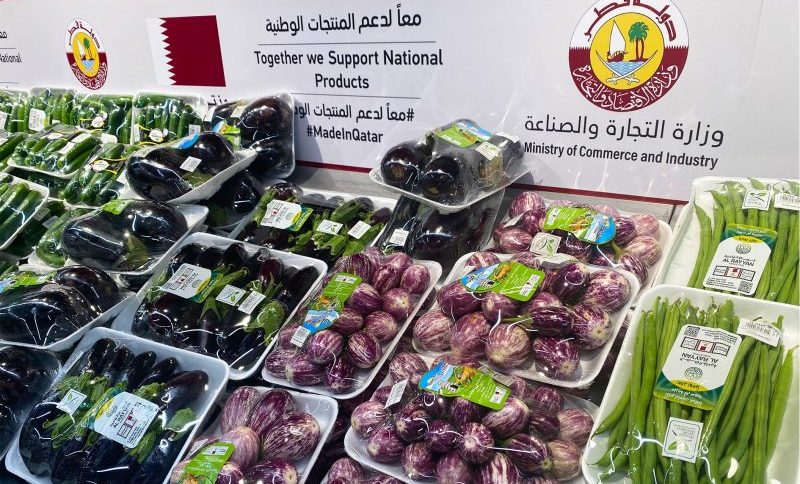The Gulf state has topped Arab countries in terms of food access and ranked as the second most food secure country in the region.
The global grain crisis triggered by the Ukraine conflict has had no impact on Qatar, a top official told local Al Sharq, amid global concerns over food security.
Qatar Chamber’s First Vice-Chairman Mohamed Bin Ahmed Twar Al Kuwari said the Gulf state already has “a strategic stock of foodstuffs”, enough to secure the local market.
He also noted Qatar’s maritime links between different ports have improved the movement of its shipments.
The Qatar Chamber official also welcomed the implementation of the Turkey-brokered agreement between Russia and Ukraine to lift restrictions on grain shipments in the shared Black Sea.
Last week, Russia and Ukraine agreed to resume grain and fertiliser exports, a move that Qatar described as “a step in the right direction” to address global food shortages.
The identical agreement was signed separately by Russia’s Defence Minister Sergei Shoigu and Ukraine’s Infrastructure Minister Oleksandr Kubrakov as Ukrainian officials refuse to be involved in a single document with Russians.
The agreement came months after Russia launched a full-scale military invasion of Ukraine on 24 February, sparking global concerns over the food and energy sector.
The landmark deal is subject to renewal unless the war ends. It will also pump wheat, sunflower, oil, fertiliser and other goods into world markets.
According to the UN World Food Programme (WFP), at least 47 million people are facing “acute hunger” amid fears of a global food crisis as long as Ukraine’s exports are blocked.
On a more positive note, Al Kuwari said he expects the agreement to drop the increasing food prices on a global scale, especially those that have already been grappling with a food crisis.
He noted that the strength of Qatar’s economy and awareness of local businessmen helped reduce the impact of the war on the country’s market.
High access to food
Qatar has topped Arab countries in terms of food access and ranked as the second most food secure country in the region by the Global Food Security report, published on Wednesday.
In terms of Food System and Economy Resilience Ranking, Qatar came fifth place in the Arab world, with the UAE taking the lead in the list.
In March, Qatar’s Hassad Food announced plans to satisfy the local market needs for grains, oilseeds, and wheat under a strategic action plan to avoid any shortage in the global supply chain.
Al Kuwari also praised Hassad’s role since the start of the crisis.
Qatar has managed to increase its efforts in achieving self-sufficiency despite the impact on the global market.
This was seen during the 2017 GCC crisis, when Saudi Arabia, Bahrain, the UAE and Egypt imposed an illegal air, land and sea blockade on Qatar.
Qatar relied on imported goods for more than 80% of its food prior to the political crisis. The dispute and subsequent blockade prompted authorities in Doha to provide alternative products for its population.
Meanwhile, the economy has continued to perform positively in comparison with its neighbours and countries beyond the region.
The International Monetary Fund (IMF) also revealed in April that Qatar’s real Gross Domestic Product (GDP) is expected to witness a growth rate of 3.9%.







